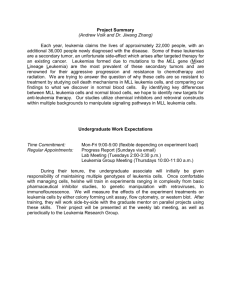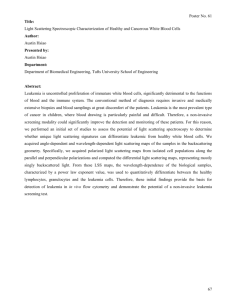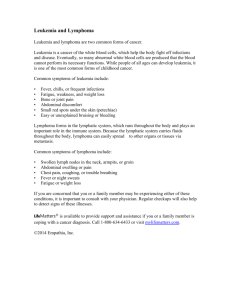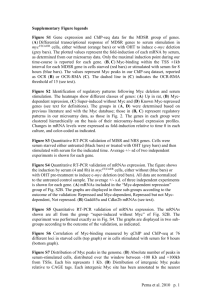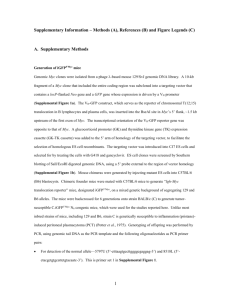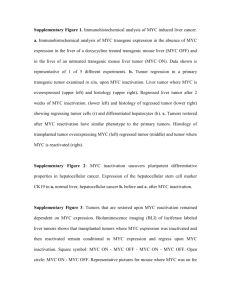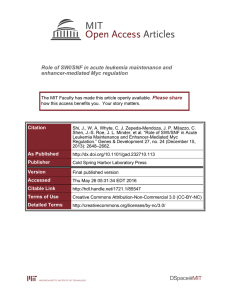Su-Hwa_Jang_and_Hee
advertisement
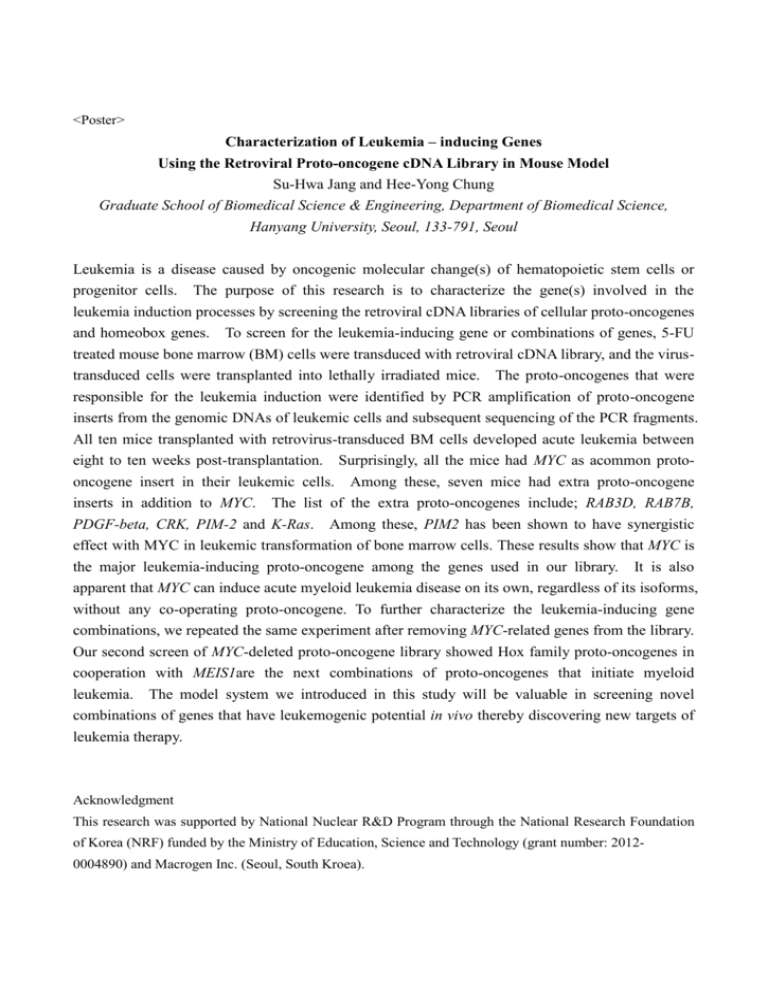
<Poster> Characterization of Leukemia – inducing Genes Using the Retroviral Proto-oncogene cDNA Library in Mouse Model Su-Hwa Jang and Hee-Yong Chung Graduate School of Biomedical Science & Engineering, Department of Biomedical Science, Hanyang University, Seoul, 133-791, Seoul Leukemia is a disease caused by oncogenic molecular change(s) of hematopoietic stem cells or progenitor cells. The purpose of this research is to characterize the gene(s) involved in the leukemia induction processes by screening the retroviral cDNA libraries of cellular proto-oncogenes and homeobox genes. To screen for the leukemia-inducing gene or combinations of genes, 5-FU treated mouse bone marrow (BM) cells were transduced with retroviral cDNA library, and the virustransduced cells were transplanted into lethally irradiated mice. The proto-oncogenes that were responsible for the leukemia induction were identified by PCR amplification of proto-oncogene inserts from the genomic DNAs of leukemic cells and subsequent sequencing of the PCR fragments. All ten mice transplanted with retrovirus-transduced BM cells developed acute leukemia between eight to ten weeks post-transplantation. Surprisingly, all the mice had MYC as acommon protooncogene insert in their leukemic cells. Among these, seven mice had extra proto-oncogene inserts in addition to MYC. The list of the extra proto-oncogenes include; RAB3D, RAB7B, PDGF-beta, CRK, PIM-2 and K-Ras. Among these, PIM2 has been shown to have synergistic effect with MYC in leukemic transformation of bone marrow cells. These results show that MYC is the major leukemia-inducing proto-oncogene among the genes used in our library. It is also apparent that MYC can induce acute myeloid leukemia disease on its own, regardless of its isoforms, without any co-operating proto-oncogene. To further characterize the leukemia-inducing gene combinations, we repeated the same experiment after removing MYC-related genes from the library. Our second screen of MYC-deleted proto-oncogene library showed Hox family proto-oncogenes in cooperation with MEIS1are the next combinations of proto-oncogenes that initiate myeloid leukemia. The model system we introduced in this study will be valuable in screening novel combinations of genes that have leukemogenic potential in vivo thereby discovering new targets of leukemia therapy. Acknowledgment This research was supported by National Nuclear R&D Program through the National Research Foundation of Korea (NRF) funded by the Ministry of Education, Science and Technology (grant number: 20120004890) and Macrogen Inc. (Seoul, South Kroea).


